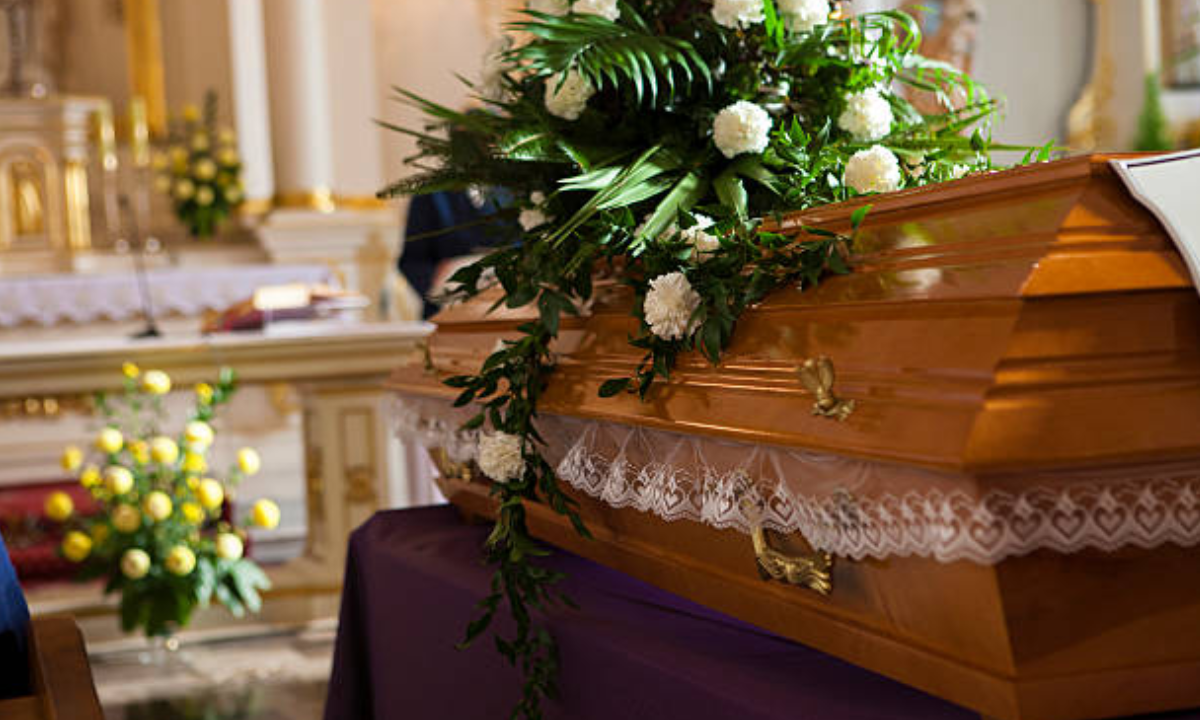A good funeral is more than just a ceremony; When a loved one dies, it is vital to organize a funeral that honors their life while also comforting those who remain. A meaningful and impactful event that assists the bereaved and pays proper tribute to the dead. Whether planning a conventional service or a modern memorial, knowing what makes a good funeral will help you organize a respectful and unforgettable departure.
In this essay, we will look at the essential factors that contribute to the meaning of a funeral, with a special emphasis on Funeral Services in India. From customization and emotional support to the role of a compassionate funeral director, each component is essential to arranging a service that speaks to visitors and celebrates the deceased’s life. We will answer related questions to assist you with the process, allowing you to design a funeral that reflects your loved one’s personality while also providing comfort to others who are grieving.
The Significance of a Good Funeral

A proper funeral serves various purposes, including commemorating the deceased’s life, allowing mourners to express their sadness, and providing a chance for closure. Funerals are an important part of the grieving process because they bring loved ones together to share memories and provide comfort during a difficult time. This community experience aids the mourning process and develops a sense of connection among those who participate, strengthening the links of love and support that are important during times of loss.
In cities like Bangalore, the importance of a well-organized funeral is much greater. Funeral services in Bangalore aim to respect cultural and religious traditions while providing crucial care to bereaved families. A decent funeral not only respects the deceased, but also provides an organized setting for loved ones to say their goodbyes. A good funeral allows individuals to absorb their loss and start the healing process by bringing them together in a shared experience of grieving and reminiscence.
Elements of a Good Funeral Ceremony
A meaningful funeral ceremony consists of several crucial parts that when combined offer a heartfelt and respectful memorial to the deceased:
Personalization: Tailoring the service to the deceased’s personality and interests can enhance the ceremony’s meaning. This may mean selecting certain music, and readings, and including personal things or symbols of significance.
Eulogy and Tribute: Family members and friends express their condolences to the departed. Sharing thoughts and experiences during the eulogy can be both consoling and encouraging to those in attendance, allowing them to remember the departed positively.
Rituals and traditions: Including religious or cultural rites in the ceremony creates a sense of continuity while also honoring the deceased’s beliefs and history. These rituals can provide solace and a constant framework to the grieving process.
Visuals and mementos: Displaying photos, films, or artifacts helps to build a visual narrative of the deceased’s life. These artifacts give individuals a tangible connection, allowing them to reflect on and cherish their memories with their loved one.
Choosing the Right Funeral Director
A compassionate and professional funeral director is critical to ensuring a smooth and respectful funeral. Here are some recommendations for choosing a good funeral director:
Reputation: Look for a funeral home with a good reputation in your community. Previous client reviews and testimonials might provide vital insight into their service quality and commitment to assisting families during difficult times.
Communication: Empathy, patience, and communication skills are essential qualities of a successful funeral director. They should be able to guide you through the planning process with compassion, responding to your questions and concerns with care and understanding.
Services Offered: Check if the funeral home has the services you require, such as traditional burial, cremation, or any special needs. They must understand your preferences and any religious or cultural traditions that are important to you and your family.
Emotional support for grieving people
Grieving is a deeply personal experience, and providing emotional support to those impacted is an important part of a good funeral. This assistance could include:
Support Groups: Encourage folks to join grief support groups, where they can express their feelings with others who understand their loss. These gatherings provide a safe space for mourners to express their emotions and find consolation in common experiences.
Counseling Services: Professional grief counseling offers individualized support and coping strategies. A trained counselor can help clients cope with their loss by teaching them emotional management skills and guiding them through the healing process.
Memorial Activities: Writing letters, making remembrance albums, or planting a tree in honor of the deceased may provide comfort. These activities allow people to respect the memory of a loved one while also processing their grief in a meaningful and personal way.
Funeral Planning and Organization
Effective planning and organization are required to guarantee the funeral works smoothly. Consider the steps below:
Budgeting: Make a detailed budget and discuss it with the funeral director to avoid unforeseen costs. Knowing your budget enables you to make more educated decisions regarding various parts of the funeral, such as venue choice and service preparations.
Venue Selection: Choose a venue that can accommodate the expected number of participants and any unique requirements. The location should be easily accessible to visitors and provide an acceptable setting for the ceremony, whether it is a formal service in a church or a more intimate gathering at a community center.
Scheduling: Schedule the funeral during a time when family and friends may attend, taking into account any necessary travel arrangements. Collaborate with key attendees to select a date and time that will maximize participation, ensuring that those who wish to pay their respects may do so.
Creating a comfortable environment.
The funeral environment has a significant impact on the attendees’ experiences and can provide comfort during a difficult moment. Here are some ways to create a pleasant and inviting environment:
Decorations: Flowers, candles, and other decorations can contribute to a warm and welcoming ambience. Thoughtful arrangements can improve the atmosphere, bringing a sense of calm and serenity. Choose decor that reflects the deceased’s personality and adds to the comfortable mood.
Seating Arrangement: Make sure there is enough seating for all participants and organize it in a way that fosters a sense of community. A well-organized seating arrangement helps participants feel welcome and creates a comfortable environment in which individuals can communicate and share their grief.
Music: Select music that reflects the deceased’s tastes and preferences, which will provide consolation to mourners. Music has the potential to evoke memories and emotions, creating a reflective and serene environment. Choose items that complement the tone of the ceremony and bring comfort to those in attendance.
Honoring the Life of the Deceased
The primary purpose of a funeral is to remember the life of the departed. To make a meaningful tribute, consider include the following elements:
Prayers and Tributes: Ask family and friends to share their experiences and memories throughout the service. Eulogies and personal tributes help to commemorate the deceased’s life, providing solace and establishing a sense of connection among guests. These emotional words might highlight the loved one’s unique features and achievements.
Memorial Displays: Create displays of images and personal artifacts that reflect the deceased’s life and interests. Memorial exhibitions visually depict their journey, allowing visitors to reconnect with the events and milestones that shaped their lives.
Charity Donations: Begin a fundraiser for a charity or cause that was meaningful to the deceased. This donation not only honors their memory but also benefits a cause close to their heart. Making philanthropic contributions, whether through traditional burial or cremation services in India, can be an important way to honor and remember the deceased’s life.
Conclusion: Honoring a Loved One’s Memory
Finally, a well-planned funeral combines uniqueness, support, and organization to honor the deceased while providing consolation to those left behind. By focusing on these critical elements—customizing the service to match the individual’s personality, providing emotional support, and meticulous planning—you can create a meaningful ceremony that provides solace while also honoring your loved one’s legacy.
Funerals are an important aspect of the grieving process because they provide an opportunity for sadness, reflection, and healing. They allowed family and friends to come together, share memories, and encourage one another during a difficult time. Whether you choose traditional burial or cremation services in India, considering the needs of both the deceased and the bereaved will ensure that the funeral is a meaningful tribute and source of comfort. Finally, a well-organized and heartfelt funeral celebrates your loved one’s life while providing a fitting send-off.
Kaashimukthi is a funeral services provider in Bangalore that assists grieving families by arranging the entire funeral process from rites to cremation burial with compassion and care. Contact us +91 9845819660

Madhu is an Entrepreneur, a Mentor, a Writer and an Aspiring Car Race Driver. He is Deeply passionate about leveraging Technology and Human Centred Design to make complex care and End of Life Planning easier. With the ultimate aim of Improving the quality of Life in the Twilight years. Madhu is highly educated and Alumni of IIM-Bangalore, Sikkim Manipal University and Bangalore University besides a Rich Industry Experience in the field of Product Management, Design, Supply chain, Finance, Commercial Management and Funeral Services.

